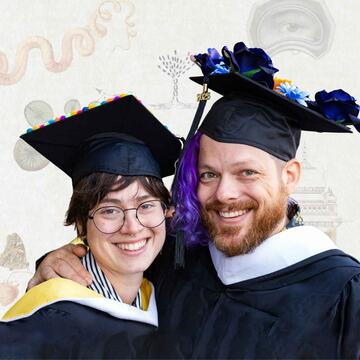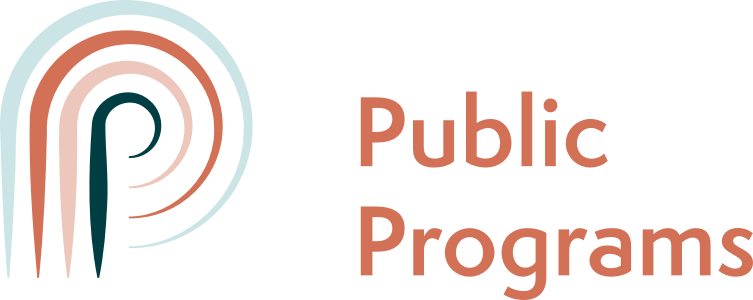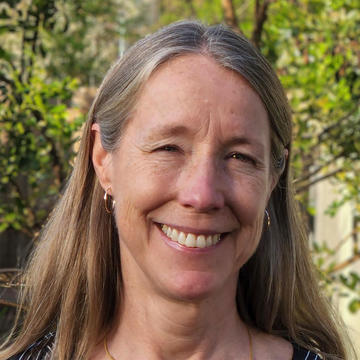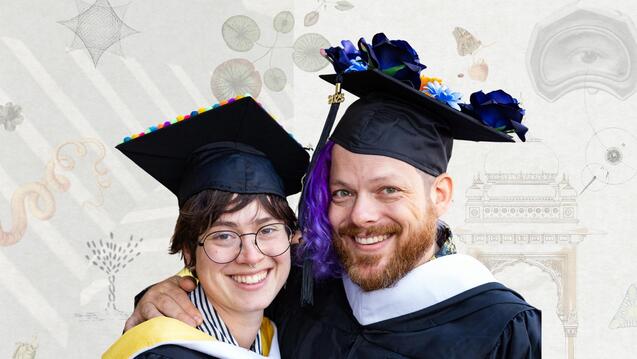Online with Kelson Pamarang. Focus programs: Blue Sky Leaders, Climate Psychology Certificate, Psychedelic-Assisted Therapies and Research Certificate, Sex Therapy Certificate

Climate Psychology Certificate
Climate Psychology Certificate
Program Overview
The Climate Psychology Certificate offers climate-aware psychological training for therapists, utilizing a comprehensive and integrative framework that draws on various behavioral science approaches and philosophies to address the growing mental health effects of the climate crisis. It also delves into the systemic legacies from which these painful eco-emotional conditions arise. Allied professionals and healers with counseling training and experience are also encouraged to apply.
The primary aim of the certificate is to equip participants with the skills to incorporate climate psychology into their clinical practice, particularly for working with eco-anxiety, eco-grief, and other climate-induced emotional distress. Additionally, the program explores ways to scale mental health support through innovative community-based solutions to meet the rising demand for climate-related mental health care. Participants will learn about:
- The immediate mental health impacts of climate-related disasters
- The long-term stress of living with the ongoing reality of climate change
- Trauma-informed therapeutic techniques and strategies to build emotional resilience and inspire effective action
- Existential challenges that arise in therapy, such as decisions about family planning, relocating due to climate migration and navigating an uncertain future amid escalating threats
- Cultivating kinship connections, drawing from ecopsychology practices to discover our rightful place within the interconnected web of life.
The program cohort is intentionally small to foster strong connections among participants, encouraging lifelong networking, collaboration, and cross-referrals. The online modules include lectures, interactive practice sessions, and Q&A opportunities with a distinguished group of guest faculty, all leaders in the field.
Continuing Education Credits for Health Professionals
- The program is approved to offer up to 42 BBS or APA CE credits.
- CE credits for psychologists are provided by the Spiritual Competency Academy (SCA) which is co-sponsoring this program. The Spiritual Competency Academy is approved by the American Psychological Association to sponsor continuing education for psychologists. Spiritual Competency Academy maintains responsibility for this program and its content.
- The California Board of Behavioral Sciences accepts CE credits for LCSW, LPCC, LEP, and LMFT license renewal for programs offered by approved sponsors of Continuing Education by the American Psychological Association.
- LCSW, LPCC, LEP, and LMFTs, and other mental health professionals from states other than California need to check with their state licensing board as to whether or not they accept programs offered by approved sponsors of Continuing Education by the American Psychological Association.
- The Spiritual Competency Academy is approved by the California Board of Registered Nursing (BRN Provider CEP16887) for licensed nurses in California. RNs must retain their certificate of attendance for 4 years after the course concludes.
- For questions about completing the CE evaluation materials for this course, as well as receiving your Certificate of Attendance, contact Kyle DeMedio at kdemedio@ciis.edu.
- For other questions about CE credits, visit the Spiritual Competency Academy website or contact them at info@spiritualcompetencyacademy.com.
- CE credits are only available for participants who attend the live workshop in-person or on Zoom. CE credits cannot be issued to participants who view a recording of a workshop.
This course turned my own ideas about what my career “should” be inside out. I feel more authentic, creative, and bold as an early career psychologist after taking this class. I would highly recommend it to anyone who senses their work as a psychologist can and should be deeply connected to the polycrisis of our time.
Climate Psychology Certificate Alum, Fall 2023
About the Certificate
The Climate Psychology Certificate curriculum at CIIS was originally developed by Program Co-Leads Leslie Davenport, M.A., M.S., LMFT, and Barbara Easterlin, Ph.D., in collaboration with CIIS' Public Programs department. The certificate is currently led by Leslie Davenport, with individual courses designed and delivered by guest instructors.
This is a fully online, live synchronous program conducted via Zoom. There are no in-person requirements. Upon successful completion, students receive a digital certificate of completion through Accredible. A BBS Continuing Education Certificate is also available upon request for applicable completed hours.
This training is designed for licensed counseling professionals, those who are license-eligible, or those who have completed the coursework required for licensure. Ideal candidates include:
- Licensed Professional Clinical Counselors (LPCC)
- Marriage and Family Therapists (MFT)
- Licensed Clinical Social Workers (LCSW)
- Clinical and Counseling Psychologists (PsyD)
- Psychiatrists and Psychiatric Nurse Practitioners (MD and NP)
- Allied professionals who work within the therapeutic frame
Under specific circumstances, prospective medical and mental health professionals who are not yet licensed may apply if they have completed the great majority of their coursework and have secured a traineeship or internship for gaining training hours of counseling and psychotherapy and have plans to complete their coursework in parallel.
Climate Psychology in Practice
The impact of climate-aware therapy goes far beyond the therapy room. By bringing a psychological understanding of how we arrived at this global crisis and strategies for effective engagement, therapists can help create sustainable solutions. Ways you can integrate this work include:
- Leading accessible climate support groups in therapeutic or community settings
- Partnering with agencies, advocacy groups, and nonprofits to provide resources to staff and the communities they serve
- Collaborating with businesses, academic institutions, and environmental organizations to foster emotionally-inclusive work cultures, and guide initiatives with behavioral science perspectives to support engagement
- Contributing through research, writing, speaking, or teaching on the psychological dimensions of climate work
- Shaping climate education in schools by introducing emotionally-intelligent features to curriculums
Curriculum
Climate psychology lives within a social justice framework, recognizing that confronting climate change also means addressing generational and collective trauma, human rights violations, the rights of nature, and historical accountability for environmental harm.
Some modules in the certificate training examine how climate change disproportionately affects the mental health of marginalized and vulnerable communities, emphasizing the need for ethical policies and decision-making that center and prioritize these populations.
Guided by a developmental lens, the program will include the ways in which climate change can be explained to children of various age groups, giving kids reason to hope, and become part of meaningful change without minimizing the challenges ahead. With half the youth (16-25 year old) reporting distress about the climate in ways that disrupt their daily lives and functioning, the program addresses the moral injury that government inaction has inflicted.
With destructive extreme weather events rapidly on the rise, training includes culturally informed, community-oriented disaster mental health. These approaches aim to reduce psychological harm and build resilience before, during, and after climate-related crises. Emphasis is placed on interdisciplinary planning to empower communities—equipping local leaders to recognize and respond to emotional distress, while also supporting emergency personnel in managing their own stress and caring for others more effectively.
The ecological crisis is not only a call to protect the survival of humanity and all life on Earth—it also holds the transformative potential to advance human consciousness and evolution toward greater social, racial, and economic equity. The challenges we face today are rooted in a deeper crisis of belonging, imagination, perception, and connection. In this context, we explore the clinical relevance of our interdependence, inviting a return to the richness of diversity, the beauty of life, and a renewed relationship with Earth as our sacred home.
Cohort Schedule
-
Weekend One Date Time Instructor Topic Friday, September 19 9:00am to 12:00pm PDT
1:00pm to 4:00pm PDT
Via ZoomLeslie Davenport Clinical Foundations of Climate Psychology Saturday, September 20 9:00am to 12:00pm PDT
1:00pm to 4:00pm PDT
Via ZoomLinda Thai Trauma-Informed Somatic Decolonization Practices and Perspectives Weekend Two Date Time Instructor Topic Saturday, October 4 9:00am to 12:00pm PDT
1:00pm to 4:00pm PDT
Via ZoomTheopia Jackson Multicultural Community Climate Weekend Three Date Time Instructor Topic Saturday, October 25 9:00am to 12:00pm PDT
Via Zoom & 1:00pm to 2:30pm PDTAnna Graybeal Supporting Community with Climate 2:30pm to 4:00pm PDT
Via ZoomLeslie Davenport Practicing Skills, Integration and Check-in Weekend Four Date Time Instructor Topic Friday, November 14 9:00am to 12:00pm PST
Via ZoomBritt Wray Scaling Up with Depth and Purpose Saturday, November 15 9:00am to 12:00pm. PST
Via ZoomAndel Nicasio Trauma-Informed Disaster Mental Health 1:00pm to 4:00pm. PST
Via ZoomWeekend Five Date Time Instructor Topic Friday, December 5 9:00am to 12:00pm PST
Via ZoomCaroline Hickman Children, Youth, and Parenting Saturday, December 6 9:00am to 12:00pm PST
1:00pm to 4:00pm PST
Via ZoomLeslie Davenport
Guest: Bayo AkomolafeUnthinking the Climate Crisis: A Relational and Emergent Approach
Applied Learning, Integration, and Partnerships
Course Descriptions
-
- Leslie Davenport
This course offers a foundational understanding of the climate emergency: its causes, its wide-ranging mental health impacts, and the cultural and political systems that shape it. We’ll begin with a concise overview of climate science and the systemic environmental and social forces driving the crisis. From there, we’ll explore how these realities inform a climate-aware therapeutic stance, introducing skills that build resilience, sustain engagement, support activism, and strengthen self-regulation.
Key concepts in climate psychology will be introduced, including the unconscious processes that shape our beliefs, emotions, and behaviors around sustainability. We’ll examine evidence-based therapeutic approaches for addressing both the acute mental health impacts of environmental disasters and the chronic stress of a changing climate. Throughout, we’ll highlight our profound psychological and physical interdependence with the natural world and how this awareness can inspire both healing and action while also considering a new ethics of practice that extends therapeutic approaches into meaningful community engagement.
-
- Linda Thai
This course invites participants to reclaim secure attachment not only through human relationships but also through connection to land, ancestral traditions, and environmental kinship. Guided by the principles of “ReWilding the Soma” and “ReMembering,” we will explore how colonization has disrupted the body-land continuum and severed ancestral ties, and how we might begin to mend them. Through somatic practices, expressive arts, and ritual, we’ll engage in grief work that spans generations and cultures impacted by colonization, fostering the restoration of relational wholeness. At its heart, this framework calls us to move from individualism toward relational ecologies—reconnecting with Earth, ancestry, and chosen communities. By somatically recognizing how systems of oppression shape identity and regulation, we align with climate psychology’s broader commitment to social and ecological justice.
-
- Theopia Jackson
This course emphasizes community-based, participatory approaches that are highly relevant to climate-related therapy. Rather than imposing outside solutions, the focus is on advocating for co-created healing practices rooted in community strengths, cultural identity, and historical context. The work centers models like Emotional Emancipation Circles and African-centered frameworks that address collective trauma and foster emotional resilience. The course highlights the importance of embedding care within community networks by training local facilitators and creating culturally resonant spaces for healing. These principles offer a roadmap for climate-engaged therapy: prioritize community-led, culturally responsive, and context-aware practices that support both individual and collective resilience. These approaches are particularly vital in addressing the disproportionate climate impacts on BIPOC and other marginalized communities, bridging emotional support with systemic justice.
-
- Anna Graybeal
The climate crisis evokes a wide range of responses: some people are overwhelmed with distress, while others avoid the topic altogether. As therapists, how do we navigate these divergent reactions, including our own, in clinical work?
This experiential workshop explores how group psychotherapy can support emotional resilience and relational repair in the face of climate disruption. Most of us weren’t taught how to express difficult feelings in constructive ways; instead, we learned to shut down or disconnect. Group therapy offers a powerful space to unlearn those patterns and build capacity for honest, connected dialogue.
Participants will explore key principles of group work and practice facilitation techniques that help people process climate emotions, whether intense or avoided, with greater tolerance and connection. We’ll also examine the distinctions between climate therapy groups and Climate Cafés, and how to skillfully facilitate each to meet the emotional needs of diverse participants.
-
- Leslie Davenport
This mid-point session provides an opportunity to pause, reflect, and integrate learning to date. We will introduce a clinically grounded resiliency practice designed to strengthen personal and professional capacity in climate-aware work. Participants will engage in group discussion and guided reflection to deepen understanding of the material presented so far, exploring its application in their unique contexts. The session also creates space to share feedback on the program’s structure, allowing for thoughtful adjustments that enhance the learning experience. Together, we’ll ensure the remainder of the course is responsive, relevant, and aligned with participant needs and goals.
-
- Britt Wray
The instructor will offer a behind the scenes look at her experience with climate distress as shaped by her positionality, journey into the field, and insights gained along the way about the transformative potential of climate anxiety and grief. Using interactive sessions with students throughout, she will offer a radical interdisciplinarian's view on the many ways in which climate psychologists are in the business of shifting cultural norms and how we can do so constructively using our unique gifts and experiences. Students are guided to build their own existential resilience toolkit via this session, as well as consider exciting possibilities for the future of climate-mental health care and psychosocial support. Attention is paid to why we must take extra care to be gentle with ourselves when doing this work, yet may fail to in many instances, given the hard truths involved in being a climate professional.
-
- Andel Nicasio
This course offers an exploration of the core principles of community disaster mental health, emphasizing culturally responsive, trauma-informed approaches to support individuals and communities affected by extreme weather disasters and other large-scale disruptions. Unlike traditional therapy, which often focuses on individual, long-term treatment in clinical settings, disaster mental health requires providers to be prepared for rapid, flexible, and scalable interventions that meet people where they are, often in shelters, schools, or community centers. Participants will explore strategies for psychological first aid, crisis stabilization, and fostering resilience, with special attention to the needs of marginalized and underserved populations. The course highlights community engagement, local provider training, and collaborative care models that promote trust and recovery. It also addresses how to adapt evidence-based practices for diverse cultural contexts and reduce access barriers. This course equips participants to support collective healing and equitable recovery in times of crisis.
-
- Caroline Hickman
Children and young people have the greatest stake in addressing the climate and biodiversity crisis, yet adults often struggle with how to communicate the truth, often swinging between overprotection and overwhelming honesty. This course explores how to hold that tension with care, validating young people’s fears while supporting their resilience. As youth around the world take to the streets and courts to demand action, we’ll examine how adult responses of defensiveness, guilt, and grief shape intergenerational dialogue. Drawing on global research from the UK, US, Philippines, Maldives, and Europe, the course explores the psychological impacts of climate change on children, including the rise of climate anxiety. We’ll also look at youth-led legal efforts in the European Court of Human Rights that frame climate inaction as a violation of children’s rights. Together, we’ll consider how to create emotionally honest, developmentally appropriate, and justice-oriented approaches to supporting young people in a climate-altered world.
-
- Bayo Akomolafe
In this conversation with Bayo Akomolafe, he offers a radically different lens for engaging the climate crisis, one that moves beyond urgency, problem-solving, and human-centered control. Rooted in post-activism, decoloniality, and Yoruba cosmology, his work invites us to slow down, unlearn dominant narratives, and approach collapse not as an enemy to defeat but as an invitation to transformation. Rather than seeking immediate answers, he encourages us to dwell in uncertainty, compost outdated paradigms, and make space for the more-than-human world to think with us. This orientation challenges conventional activism and opens a path toward deeper relationality, humility, and emergent possibilities in times of ecological unraveling.
-
- Leslie Davenport
Our closing session brings together the threads of our shared learning, combining expressive arts and ecopsychology practices to deepen reflection and integration. This is a space to surface unanswered questions, harvest insights, and explore the guiding question: Where do we go from here? Participants will engage in small group networking with cohort members who share professional interests, creating opportunities to envision and plan future collaborations. Together, we’ll celebrate the connections formed, the skills developed, and the possibilities ahead, leaving with both a sense of closure and a foundation for ongoing partnership in climate-aware, community-focused work.
Application Timeline
| Spring | Fall |
|---|---|
| Applications Open: October 1-December 5 | Applications Open: May 1-July 31 |
| All synchronous teaching weekends online via Zoom. | All synchronous teaching weekends online via Zoom. |
Entry Requirements
Applications for Certificate Programs may be submitted through CIIS' online application platform. Applications include:
- Background and Goal Statement
- Resume or Curriculum Vitae
- An optional Scholarship Essay
We especially encourage applications from individuals who: identify as Black, Indigenous, and people of color; identify as LGBTQIA+, and/or serve marginalized or under-represented populations. Applicants will be accepted on a rolling basis until the cohort is full. Applicants will be notified within a few weeks of the application deadline.
State Authorization: Please note that some states require institutions to be authorized or exempt in order to enroll online students located in the state. Not all states have this requirement. View the list of states from which CIIS may or may not enroll online students on CIIS' State Authorization page.
Application Personal Statement
In two-to-three pages, please describe your background and interest in this certificate. Tell us anything pertinent regarding your personal development, professional experience, climate-related activism, climate science, professional license(s) held and/or the stage you are in with regard to your clinical licensure, training or internship. Include descriptions of your training in psychotherapy, climate psychology, or related areas. Share how you learned didactically and where you practiced these skills and knowledge sets.
Tuition & Aid
-
Application Fee (non-refundable) $50 Program Fee $3,000 CIIS Community Discount (Students, Alumni, Staff & Faculty) 20% Discount ($600 off) -
All accepted applicants will be able to select their program fee from the designated range, as well as choose their payment plan option. All accepted students are also eligible for payment plan options (one, two, or four installments) at no extra charge.
-
As part of our mission to expand the field of climate psychology, CIIS has designated funds to offer two half $1,500 Scholarships and four partial $1,000 scholarships every cohort for those in financial need.
The Future Leader Scholarships are specifically for applicants who plan to use their climate psychology certification not only to expand their personal practice, but to pursue a leadership position within the field of climate psychology. Examples of this could include, but not be limited to:
- Developing programming to provide emotional support to climate activist organizations
- Conducting research into the mental health dimensions of the climate crisis
- Training clinicians on assessing and treating climate distress
- Working with existing community resources, including first responders, to increase awareness of mental health consequences of climate related disasters
- Developing climate curricula for schools
- Engaging in climate communications
- Providing behavioral science consultation to agriculture and land use work
- Working with environmental justice groups in BIPOC communities
- Integrating emotional sustainability themes in business or tech organizations
To apply, please upload a one-to-two page essay with your program application that answers the following questions:
- How will you pursue a leadership position within the field of climate psychology after you complete your training?
- How will you bring the climate psychology education you receive in this program to others in your professional and/or other communities?
- What is your financial situation and why are you applying for a scholarship?
-
Fall: A non-refundable application fee of $50 is due at the time of application. Payment of the program fee (or the first payment of your payment plan) must be received by September 1st, to secure your space in the program. Payment plans are available and will be provided to accepted applicants. If a student withdraws before October 1st, fifty percent of the full fee will be due. The full fee is due if a student withdraws after October 1.
Applicants will be notified within two weeks of the application deadline, or sooner.
Program Lead & Instructors
Program and Faculty Lead
Climate Psychology Certificate
Events and Info Sessions
Attend our in-person event on January 31 or online event on February 21.
Online with Kelson Pamarang. Focus programs: Blue Sky Leaders, Climate Psychology Certificate, Psychedelic-Assisted Therapies and Research Certificate, Sex Therapy Certificate
Frequently Asked Questions
-
Ecopsychology is informed by systems theory and connects ecological principles with psychology’s contributions to stress reduction and wellness. Ecotherapy promotes human well-being through direct experience of nature, sometimes working from frameworks of ancestral healing and Indigenous knowledge, to encourage awareness that our psyches and bodies are not isolated or separate from our environment and promotes caring for and connection with the Earth. Climate Psychology is an emerging, related discipline that embraces many of the same values and aims to specifically understand the impact of the climate and ecological emergency (CEE) on mental health as well as the barriers to changing the “business as usual” mindset that perpetuates ecocide. Climate psychology provides guidance for understanding and confronting society-wide reluctance to take appropriate action in relation to the escalating threat of climate change as well as psychological defenses which make it more difficult to develop solutions. Environmental, racial, and economic justice are seen as key to the reclamation of a healthy planet and transformation of the systems that have contributed to the CEE. Awareness of these inequities along with climate science facts, examination of consumerist values, development of resilience, and use of empowering climate messaging are all part of the field of Climate Psychology.
-
Emotional distress triggered by climate change is already showing up in our practices and will only increase in the coming years. According to the Yale Program on Climate Change Communications, 70% of Americans are very or somewhat worried about global warming and more than half state they are being harmed right now (2021). While much of our mental health training is applicable to addressing eco-anxiety, grief and other forms of climate-triggered dread, there are specific competencies required to skillfully address this escalating crisis. This program will equip clinicians and related professionals with clinical perspectives and therapeutic tools to effectively work with this rapidly emerging issue.
-
Yes, allied professionals are encouraged to apply. However, it's important that all practitioners who are not clinically licensed are aware that we are teaching from a context of both clinically licensed therapists and coaches who work within different professional frames.
-
The Climate Psychology Certificate program is offered by an accredited university and this program meets the requirements for the California Board of Behavioral Sciences (BBS) and is approved for 60 CEs for LCSW, LPCC, LEP, and LMFT licenses:
- LCSWs and MFTs from states other than California need to check with their state licensing board for approval.
- CIIS is not authorized to issue APA CEs. However, we will work with a third-party provider to offer APA CEs for certain courses within the certificate, upon request.
-
No. In addition to providing skills and training in climate psychology, this program intentionally limits the size of the cohort in order to cultivate strong connections among the participants that supports the possibility of long-term collaborations. For this reason, participants must be able to attend all the sessions and the classes will not be recorded.
-
Unfortunately, certificate programs are not eligible for student loans. Certificates are technically considered “Continuing Education” and students are not considered matriculated college students, and so most tuition-based scholarships and loans do not apply.
-
All CIIS current students, faculty, staff, and alumni are eligible for the CIIS discount. Former graduates of our other certificate programs are also eligible for the discount.
Alumni Testimonials
-
“I would highly recommend this certificate program to anyone looking for training regarding climate psychology. They have the most renowned team of presenters and facilitators in this field.”
“This program was personally and professionally meaningful, It offered an opportunity to process climate grief, learn new information, and gain practical skills that I will be able to use with clients.”
“The instructors created a learning environment that was compassionate, relational, and challenging. I feel more empowered to weave climate aware therapeutic practices into my teaching, writing and research.”
“The program covered a wide range of approaches from analytical to spiritual. But what will stay with me the most is some profound ways people opened up here, and opened something up in me. You can't write that into a curriculum.”
-
"The Climate Psychology Certificate Program through CIIS is excellent! Our group members, the speakers and workshop leaders, and our facilitators all brought such richness, breadth, and depth to the overall experience. The guest speakers were diverse in their experience and their professional work, which provided a little for everyone and ample opportunity to expand your horizons.”
“The nature of this course is that it will have to keep evolving and I give it a high rating because I trust it to do so! I found the shapers of this program to be engaged in growing and learning - keeping this program from getting stale or out of touch. I saw engaged effort and hands-on care for making this program be all it can be. Through this program my knowledge of climate psychology and ability to engage in this field was expanded and deepened.”
“This program was moving and informative, not just of climate psychology but of the ways in which the field of psychology is poised to adapt towards justice and decoloniality. I am so inspired by the cutting-edge work our presenters and my peers are doing to respond to the climate crisis and it’s deeper roots in racism and colonialism.”
“The CIIS Climate Psychology Certificate program is an extraordinarily rich experience offering an array of outstanding presenters on a variety of topics, all relevant to becoming a climate aware professional with both individuals and communities. If you feel the "call" say YES to this amazing program.”
“I am so glad I participated in this program - as someone who is not a clinician, I'm graduating feeling much more prepared to bring a climate psychology perspective in the work I do in climate advocacy. It was a gift to learn from such a rich array of presenters and fellow students, and I'd highly recommend this course to anyone who wants to better understand how to navigate the inner terrain of climate change in their professional lives.”
Contact Us
Please contact Kyle DeMedio at kdemedio@ciis.edu with any additional questions.

Take the Next Step
Ready to continue your journey toward impactful climate engagement? We're here to guide the way.











